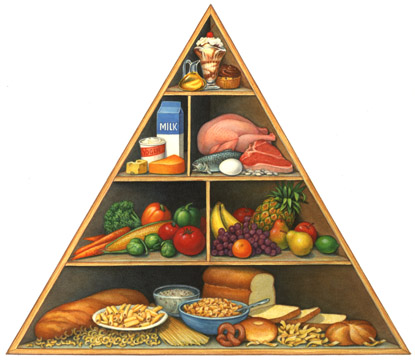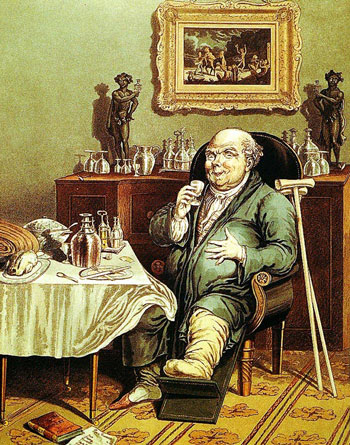Many diets reverse Heart Disease through blood pressure regulation:
http://30bananasaday...-heart-disease/
But I believe it is largely a ascorbate deficiency issue that causes arterial damage:
http://www.ncbi.nlm....7?dopt=Abstract
From http://www.lef.org/f...tamin_c_01.html
Our direct observation, based on carotid ultrasound testing, show that very high vitamin C supplement users have remarkably healthy carotid arteries. When adjusted for other factors such as age, elevated homocysteine, LDL cholesterol and glucose, these very high vitamin C takers as a group appear to have less carotid pathology than the general population. A review of previously published findings indicates that consuming a wide variety of very high potency dietary supplements, combined with blood screening to monitor cholesterol, homocysteine, glucose, iron and other atherogenic risk factors, confers a significant protective effect against the development of carotid artery disease.
It's the cholesterol, stupid!
 http://www.ncbi.nlm....les/PMC3012294/
http://www.ncbi.nlm....les/PMC3012294/During the 1992 presidential campaign in the USA, the Clinton campaign slogan was “It's the economy, stupid,” and that phrase apparently was helpful in getting Mr. Clinton elected president. Several recent publications have been highly critical of some lipid-lowering trials using statin drugs and also have debased the cholesterol “hypothesis” on atherosclerosis (1–3).
What is the evidence that “elevated cholesterol” causes atherosclerosis? There are four supporting arguments in my view (4–7). 1) Atherosclerotic plaques are easily produced experimentally in herbivores (e.g., rabbits, monkeys) simply by feeding these animals cholesterol (e.g., egg yokes) or saturated fats. Indeed, atherosclerosis is probably the second easiest disease to produce experimentally. (The first is an endocrine deficiency—simply excise an endocrine gland.) 2) Cholesterol is present in atherosclerotic plaques in experimentally produced atherosclerosis and in plaques in human beings. 3) Societies and individuals with high serum cholesterol levels (total and low-density lipoprotein [LDL] cholesterol) compared to populations and individuals with low levels have a high frequency of atherosclerotic events, a high frequency of dying from these events, and a large quantity (burden) of plaque in their arteries. (The best study in my view supporting this thesis is the Seven Countries study [8–10].) 4) Lowering total and LDL cholesterol levels decreases the frequency of atherosclerotic events, the chances of dying from these events, and the quantity of plaques in the arteries.
No one has produced atherosclerosis experimentally by increasing the arterial blood pressure or glucose levels or by blowing smoke in the faces of rabbits their entire lifetime or by stressing these animals. The only way to produce atherosclerosis experimentally is by feeding high-cholesterol and/or high-saturated-fat diets to herbivores. (Atherosclerosis is not a disease of carnivores, and it is not possible to produce atherosclerosis in carnivores [dogs, cats, tigers, lions, etc.] unless the thyroid gland is removed or made dysfunctional before a high-cholesterol or high-saturated-fat diet is administered [11]).
Why has the proven causal relation between abnormal serum LDL cholesterol and atherosclerosis been so difficult to accept by so many extremely intelligent physicians? One factor, in my view, is that this cholesterol-atherosclerosis causal relation has been diluted by the concept of multiple atherosclerotic risk factors and the idea that atherosclerosis is a multifactorial disease. The Framingham study, which has taught us all so much, introduced the concept of “risk factors” and fostered the view that the greater the number of risk factors present, the greater the chance of atherosclerotic events (12). As a consequence, “elevated cholesterol” became just one of several risk factors and was perceived as essentially having no more influence than elevated systolic blood pressure, diabetes mellitus (“glucose intolerance”), cigarette smoking, abdominal obesity, lack of regular physical activity, family history, or left ventricular hypertrophy except in the younger patients (13). The view that atherosclerosis is a multifactorial disease has muddled the waters in my view. This is not to say that cigarette smoking, elevated blood pressure, diabetes mellitus, obesity, and inactivity are not harmful—of course they are—
but if the serum LDL cholesterol is <60 mg/dL or the serum total cholesterol is <150 mg/dL, there is no evidence (with extremely rare exceptions [14]) in my view that these other “risk factors” cause atherosclerosis.
A second factor is the introduction and propagation of the thesis that atherosclerosis is an inflammatory disease (15). Yes, a few mononuclear cells are regularly seen in experimentally produced atherosclerotic plaques but not commonly in plaques of patients with fatal coronary disease or in plaques excised by endarterectomy (16, 17). And, yes, some blood inflammatory markers are commonly elevated in persons with atherosclerotic events. But, many patients have atherosclerotic events when the high-sensitivity (hs) C-reactive protein (CRP) is normal (<1 mg/dL), and patients with the highest levels of hs-CRP (e.g., rheumatoid arthritis, systemic lupus erythematosus) have only a slightly higher frequency of atherosclerotic events than do others of similar age and sex with normal or near-normal hs-CRP levels.
The same principle, however, does not apply to cholesterol. The patients with the highest serum levels of total and LDL cholesterol, namely those patients with homozygous familial hypercholesterolemia, have an incredibly high frequency of atherosclerotic events, and they have them at very young ages—teenage years (18). And patients with the next highest serum LDL cholesterol levels, namely those with heterozygous familial hypercholesterolemia, have atherosclerotic events often in their 30s and 40s.
A third factor preventing acceptance of the causal relation between abnormal serum LDL cholesterol and atherosclerosis has been the observation that among adults with nonfamilial hypercholesterolemia but similar levels of serum LDL cholesterol, some develop atherosclerotic events and others do not. It is in this group particularly in my view that the other “risk factors” as well as high-density lipoprotein (HDL) cholesterol levels come into play. Of two people of similar age and sex and similar serum LDL cholesterol levels, say 130 mg/dL, the patient whose systolic systemic blood pressure is 170 mm Hg versus the other patient with a systolic pressure of 115 mm Hg is at much greater risk of an atherosclerotic event. And cigarette smoking may work in a similar fashion.
Nevertheless, if the serum LDL cholesterol is <60 mg/dL, maybe <50 mg/dL, irrespective of the degree of blood pressure elevation or the number of cigarettes smoked daily, atherosclerotic plaques do not develop.
Another factor may be the use of multiple atherosclerotic risk factors in the guidelines for whom to treat and whom not to treat with lipid-lowering drugs. Although the guidelines do focus on the serum LDL cholesterol level, the number of other “risk factors” present plays a prominent role in this therapeutic decision (19). If no other nonlipid risk factors are present or if only one non-LDL cholesterol risk factor is present and there have been no previous atherosclerotic events and diabetes mellitus is not present, the magical drug treatment number is an LDL cholesterol level >190 mg/dL.
Refraining from drug intervention until this very high LDL cholesterol level is reached plays down or even nullifies the importance of cholesterol in preventing events. (It is important to realize that the lipid-lowering drug guidelines [1988, 1993, 2001, and 2004] have to do only with reducing atherosclerotic events. They do not concern themselves with preventing atherosclerotic plaques in the first place. Of course, if atherosclerotic plaques are prevented, atherosclerotic events do not occur!)Such high guideline drug treatment levels keep, in my view, many persons deserving of lipid-lowering drug therapy from receiving these magical agents (20). The danger of high cholesterol levels to longevity was recognized by the life insurance companies in the 1930s but not by physicians. The normal range of serum total cholesterol in laboratory reports for decades was listed as 150 to 300 mg/dL. In 1972, one of the world's most prominent lipidologists reported that his total cholesterol “worry level” for patients was a value >300 mg/dL. If the expert uses such high numbers, what importance can be placed on cholesterol by the nonexpert community?
Incidentally, for the first several decades of the Framingham study, an “elevated cholesterol” was defined as a serum total cholesterol >250 mg/dL. At this level, it is easy to understand how this “risk factor” did not separate itself from the others.It is time to move on from a goal “to decrease risk” to a goal “to prevent plaques” (21). To do so requires much lower levels of LDL cholesterol than advocated by the guideline publications.
My goal for all individuals worldwide is a serum LDL cholesterol at least <100 mg/dL and ideally <60 mg/dL.
The beauty of the JUPITER trial is that it dramatically demonstrates what incredible reductions in events can be produced in a short period of time (<2 years) by reducing the LDL cholesterol by 50% even when starting from a level considered by many to be normal (<130 mg). The mean level (108 mg/dL) might be considered “good” or even “great” by many physicians, but lowering it to 55 mg/dL (by rosuvastatin 20 mg/dL) decreased all events by >40%, indeed nearly 50%, including a reduction in stroke by 48%! This trial beautifully shows that we can drastically reduce or even prevent atherosclerotic events and expensive procedures by taking a single pill every day and do it safely. Most Americans will not reach the JUPITER treatment levels (LDL cholesterol 55 mg/dL) by diet alone. The statin drugs have been ingested by humans now for nearly 30 years, and their safety and thus benefit/risk ratio may be the best of any proven useful medication. The toxicity resides mainly in atherosclerosis, not in the drug.
I consider it unfortunate that there continues to be so much criticism of statin drugs, which I consider to be the best cardiovascular drug ever created.[low asterisk] These drugs can prevent first and subsequent atherosclerotic events, they can reduce cardiovascular and all-cause mortality rates, they have the capacity to reduce the quantity of atherosclerotic plaques already present, and by decreasing the frequency of myocardial infarcts they reduce the frequency of heart failure and malignant ventricular arrhythmias. Their ability to reduce the serum levels of CRP may have benefits not yet fully appreciated.
The discoverer of the first statin drug (Akira Endo, PhD) is deserving of the Nobel Prize for medicine!The lower the LDL cholesterol the better, and this principle has been established repeatedly despite the voices of the anticholesterol, antistatin fallacy mongers!
It's the cholesterol, stupid!
























































